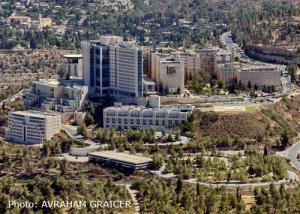Israel’s hospitals are bracing to receive freed hostages following recent developments in the ongoing conflict, a senior Health Ministry official confirmed. As negotiations and military operations continue, medical facilities across the country have ramped up preparations to provide urgent care and rehabilitation for individuals expected to be released. This readiness underscores the healthcare system’s pivotal role in addressing the complex needs of hostages recovering from captivity, amid the tense and evolving security situation.
Israel’s Hospitals Mobilize Resources and Staff for Incoming Hostages
In response to the anticipated arrival of hostages recently freed from captivity, Israeli hospitals have swiftly scaled up their medical and psychological support systems. Authorities have deployed additional teams of trauma specialists, emergency nurses, and mental health professionals across key medical centers. According to a senior official from the Ministry of Health, hospitals are equipped with dedicated units designed to provide comprehensive care – both physical and emotional – tailored to the unique needs of hostage survivors. Specialized triage areas have been established to ensure rapid assessment and treatment upon arrival, minimizing delays in critical care.
Key measures currently being implemented include:
- 24/7 Mental Health Support: Psychologists and counselors trained in trauma recovery are on call around the clock.
- Expanded Intensive Care Capacity: Additional ICU beds and ventilators prepped for potential complications resulting from prolonged captivity.
- Family Liaison Services: Dedicated staff to facilitate communication and updates between patients and their relatives.
| Hospital | Prepared Units | Specialized Staff |
|---|---|---|
| Sheba Medical Center | Trauma ICU, Psychiatric Wing | Trauma Surgeons, Psychiatrists |
| Rambam Health Care Campus | Emergency Response Unit | Emergency Physicians, Counselors |
| Tel Aviv Sourasky Medical Center | Rehabilitation & Recovery | Physical Therapists, Social Workers |
Health Ministry Details Medical Protocols and Psychological Support Plans
In anticipation of the arrival of freed hostages, the Health Ministry has outlined a comprehensive medical protocol designed to address the complex physical conditions resulting from prolonged captivity. Medical teams across Israel’s hospitals have been equipped with specialized equipment and are ready to implement rapid assessments focusing on nutritional deficiencies, dehydration, and trauma-related injuries. Initial examinations include vital sign monitoring, blood tests, and imaging scans to identify both visible and underlying health issues immediately upon admission.
Parallel to physical care, psychological support structures have been intensified to assist survivors with emotional and mental health recovery. Trained counselors and trauma specialists are on call, ready to provide individual therapy sessions, group support meetings, and family counseling. The approach prioritizes continuous monitoring of psychological well-being with tailored interventions designed to mitigate the risks of PTSD and anxiety disorders. Below is an outline summarizing key support components:
| Support Area | Primary Actions |
|---|---|
| Medical Assessment | Physical exams, vital monitoring, diagnostic imaging |
| Emergency Treatment | Hydration therapy, wound care, nutrition support |
| Psychological Support | Trauma counseling, group therapy, family reunification support |
| Long-Term Care | Rehabilitation programs, ongoing mental health follow-up |
Experts Recommend Coordinated Regional Efforts to Ensure Comprehensive Care
Health professionals stress the importance of a synchronized approach among hospitals, emergency services, and community health organizations to provide freed hostages with seamless medical and psychological support. Coordination extends beyond immediate treatment, involving social services and rehabilitation programs to address long-term recovery needs. Emphasizing multidisciplinary collaboration, experts highlight that only through unified regional strategies can care be optimized and resources effectively allocated.
- Integrated care pathways to facilitate smooth transitions between emergency, inpatient, and outpatient services.
- Real-time communication channels among regional health centers to monitor patients’ progress and adjust treatment plans promptly.
- Shared training programs ensuring medical teams are equipped to handle the complex physical and psychological trauma typical of hostage situations.
| Region | Primary Hospital | Key Specialty | Support Services |
|---|---|---|---|
| Central District | Tel Aviv Medical Center | Trauma Surgery | Psychiatric Support, Social Work |
| Southern District | Be’er Sheva Hospital | Critical Care | Rehabilitation, Counseling |
| Jerusalem District | Hadassah Medical Center | Neurology | Family Liaison, Community Outreach |
The Conclusion
As Israel braces for the return of freed hostages, the readiness of its hospitals underscores the nation’s commitment to providing comprehensive medical and psychological care. Health officials continue to coordinate efforts to ensure that those rescued receive immediate and sustained support in their recovery. The situation remains fluid, with authorities closely monitoring developments as the country awaits the safe repatriation of its citizens.
